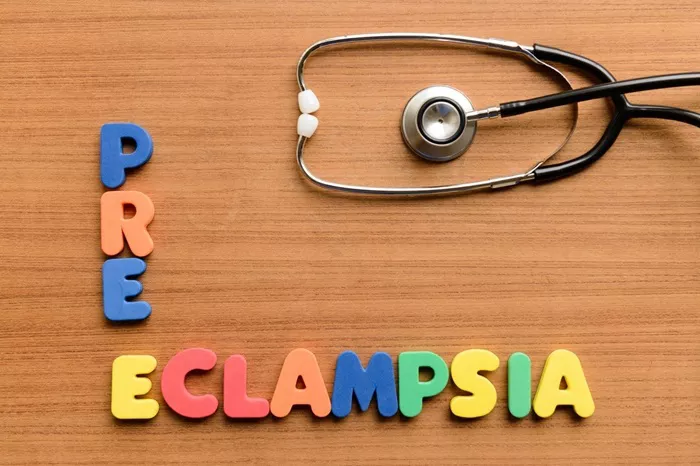Eclampsia is a severe complication of pregnancy characterized by the onset of seizures. It is a serious condition that poses risks to both the mother and the unborn baby. Understanding the causes of eclampsia is crucial for early detection, prevention, and management. This article will delve into the various causes and contributing factors of eclampsia, highlighting the importance of comprehensive prenatal care.
“Unveiling the Mysteries: 11 Key Causes of Eclampsia”
1. Genetic Predisposition
Genetic factors play a significant role in the development of eclampsia. Research indicates that women with a family history of eclampsia or preeclampsia are at a higher risk of developing the condition. Specific genetic markers and mutations have been linked to an increased susceptibility to eclampsia. These genetic predispositions can affect the way a woman’s body responds to pregnancy-related changes, making her more prone to hypertension and subsequent eclampsia.
2. Preexisting Hypertension
Women with preexisting hypertension, also known as chronic hypertension, are at a higher risk of developing eclampsia. Chronic hypertension refers to high blood pressure that exists before pregnancy or develops before 20 weeks of gestation. This condition can lead to complications such as poor blood flow to the placenta, which can contribute to the development of eclampsia. Managing blood pressure levels before and during pregnancy is crucial to reducing the risk of eclampsia.
3. Preeclampsia
Preeclampsia is a precursor to eclampsia and is characterized by high blood pressure and protein in the urine. If left untreated, preeclampsia can progress to eclampsia. The exact cause of preeclampsia is not fully understood, but it is believed to involve abnormal placental development and immune system responses. Regular prenatal check-ups are essential for early detection and management of preeclampsia to prevent the progression to eclampsia.
4. Age Factors
Age is a significant risk factor for eclampsia. Women under the age of 20 and those over the age of 35 are at a higher risk. Teenage pregnancies often involve physiological immaturity and lack of prenatal care, which can contribute to complications such as eclampsia. On the other hand, older women may have preexisting health conditions or age-related changes in blood vessels that increase the risk of hypertension and eclampsia.
5. Multiple Pregnancies
Carrying more than one baby, such as twins or triplets, increases the risk of eclampsia. Multiple pregnancies place additional strain on the mother’s body, including the cardiovascular system. The increased demand for blood supply can lead to elevated blood pressure and other complications. Women with multiple pregnancies require close monitoring throughout their pregnancy to manage the increased risks.
6. First Pregnancy
First-time mothers, or primigravidas, are more likely to develop eclampsia compared to women who have had previous pregnancies. The reasons for this increased risk are not entirely clear, but it may be related to the body’s initial adaptation to pregnancy. First pregnancies often come with a higher likelihood of preeclampsia, which can progress to eclampsia if not properly managed.
7. Obesity
Obesity is a well-known risk factor for various pregnancy complications, including eclampsia. Excess body weight can lead to hypertension and metabolic abnormalities that increase the risk of eclampsia. Obese women are also more likely to have insulin resistance and inflammation, which can contribute to the development of eclampsia. Maintaining a healthy weight before and during pregnancy is essential for reducing this risk.
8. Diabetes
Women with preexisting diabetes or gestational diabetes are at a higher risk of developing eclampsia. Diabetes can cause vascular changes and damage to blood vessels, increasing the likelihood of hypertension and subsequent eclampsia. Proper management of blood sugar levels and regular monitoring are crucial for pregnant women with diabetes to minimize the risk of eclampsia.
9. Kidney Disease
Preexisting kidney disease is another significant risk factor for eclampsia. Kidney disease can impair the body’s ability to regulate blood pressure and fluid balance, leading to hypertension and proteinuria, which are key features of preeclampsia and eclampsia. Women with kidney disease should work closely with their healthcare providers to manage their condition during pregnancy.
10. Autoimmune Disorders
Autoimmune disorders, such as lupus and antiphospholipid syndrome, increase the risk of eclampsia. These conditions involve the immune system attacking the body’s own tissues, which can lead to inflammation and vascular damage. The resulting complications can contribute to the development of hypertension and eclampsia. Close monitoring and specialized care are essential for pregnant women with autoimmune disorders.
11. Poor Prenatal Care
Lack of adequate prenatal care is a significant contributor to the development of eclampsia. Regular prenatal visits allow healthcare providers to monitor the mother’s health, detect early signs of hypertension, and manage any complications promptly. Women who do not receive proper prenatal care are at a higher risk of developing eclampsia due to undiagnosed and untreated conditions.
Conclusion
Eclampsia is a complex condition with multiple contributing factors. Genetic predispositions, preexisting hypertension, preeclampsia, age, multiple pregnancies, first pregnancy, obesity, diabetes, kidney disease, autoimmune disorders, and poor prenatal care all play a role in its development. Understanding these causes is crucial for early detection, prevention, and management of eclampsia. Regular prenatal care, proper management of existing health conditions, and a healthy lifestyle are essential for reducing the risk of eclampsia and ensuring a safe and healthy pregnancy.


